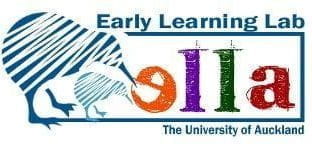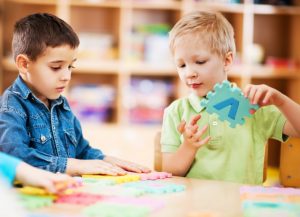How and why do infants and young children cooperate?
Much of our everyday functioning relies on the ability to successfully cooperate with each other. For instance, something as simple as buying groceries relies on the cooperation of many individuals (e.g., farmers, grocers, cashiers, etc.). In addition to being an important part of our everyday lives, cooperation plays an important role in children’s social and cognitive development. We know that children understand and engage in cooperative activities early in their lives, however, much less is known about the factors that shape the development of cooperation in early childhood.
We are currently conducting several studies examining how early parent-infant interactions, culture, biology, and other factors influence the development of cooperation in infants and young children. This work is funded by the Royal Society of New Zealand’s Marsden Fund and a Rutherford Discovery Fellowship awarded to Dr. Annette Henderson.
Investigating the development of the cooperative nature of language
Successful communication requires cooperation in a number of ways. Speakers must use words that are likely to be known by listeners. Listeners must give the speaker the opportunity to communicate and provide signals if they are not understanding what the speaker is intending to communicate.
We are currently conducting several studies examining the development of the cooperative nature of language and how this understanding influences children’s language development. One of our most recent studies examines how subtle changes in infants’ behaviour during interactions with their primary caregiver influences the cooperative nature of early interactions. In collaboration with Associate Professor Mark Sagar and the Laboratory for Animate Technologies, one goal of this project is to develop models of these early interactions and simulate them in the world’s first virtual infant model, BabyX. This work is funded by the University of Auckland and a Rutherford Discovery Fellowship awarded to Dr. Annette Henderson.



